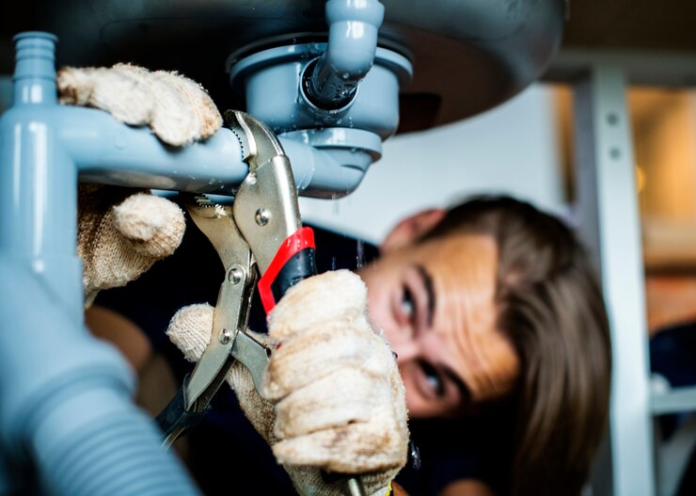Problems with plumbing are common in homes. These may vary from minor issues like clogged pipes to more significant ones like water leaks. Homeowners often face plumbing issues as part of their daily routine. Dealing with plumbing issues that disrupt your family’s routine can become a real pain. Understanding the most common causes of plumbing problems can help you prevent and fix them promptly, ensuring your life is back on track.
Here, we discuss some common plumbing problems in your home.
Blocked Drains
Blocked drains on your property can be caused by various substances such as hair, grease, debris, tree roots, and leaves. If you have a well water system, wastewater may accumulate and gradually contaminate your water supply, affecting drainage areas in and around your home.
A blocked drain can affect the structural integrity of your home, even if the blockage doesn’t result in a hazardous accumulation. Seepage from a blocked drain might quickly weaken your foundation or promote mould growth.
Moreover, a blocked drain can be resolved using a plunger and a drain cleaning solution. If the obstruction is too severe, you should contact a service professional.
Overflowing Toilet Need Residential Plumber
Overflowing toilets are common in homes, often causing discomfort and inconvenience. A common cause of this issue is an obstruction in the plumbing system or a clogged drain line. When the floaters begin to float to the top and overboard, blood pressure can surge through the roof!
Furthermore, you can adjust the little valve at the back of the toilet to prevent immediate spillover. This can avoid the unpleasant task of cleaning up your actions from the floor. To fix the toilet, try flushing it a few times or using a plunger to see if that clears the obstruction. A drain snake is likely your last DIY option. If that doesn’t work correctly, you must call a residential plumber immediately. A professional plumber can assess the situation and give you a solution to prevent a future overflow.
Sewer System Failure in Plumbing System
Have you ever had a sewage burst in your home? If you have, you know how disturbing a burst may be. You don’t want to deal with this situation again. Sewage systems can collapse due to burst pipes or pressure buildup, resulting from corroded pipes or pressure buildup. As lines age, the pipe materials like steel, iron, and asbestos deteriorate and cause systemic problems. That’s why ageing plumbing systems require monitoring.
You should have regular sewer checks conducted by an expert. As the homeowner, you are responsible for inspecting your sewer line, which connects to the main sewer line. As this line sits on your property, municipal or other local services are not required to assist you in maintaining your sewer line. You must address any potential problems that may pop up in your sewer line.
Leaky Faucets
The sound of a leaky faucet in your newly purchased home is a constant plink. People usually replace the faucets in their new homes because they want to enhance their homes’ aesthetic appeal. The severity of the issue can be determined by the duration of the faucet dripping and the need for valve seat replacement. It is necessary to resolve this problem immediately because the persistent leaking may waste several litres of water.
A faucet can leak due to various issues, such as a corroded valve seat, washer or o-ring issues, or high water pressure.
Frozen or Burst Pipes
A burst pipe can cause serious water damage to your property, so you should address it immediately. A leaky pipe is unhygienic, but a burst pipe is far worse. It can flood your home and cause extensive damage to your basement and walls. When you notice a burst pipe, it’s vital to turn off the main water valve to prevent further damage.
Frozen pipes can cause issues due to their expansion and rupture when water freezes within them during colder weather. When water freezes in a pipe, it expands and cracks due to the lack of water flow. Consequently, water may seep from them and swiftly destroy your home.
Insulating your pipes in cold weather and turning off the main water valve on extended vacations are crucial ways to avoid the risk of a burst or frozen pipe.















